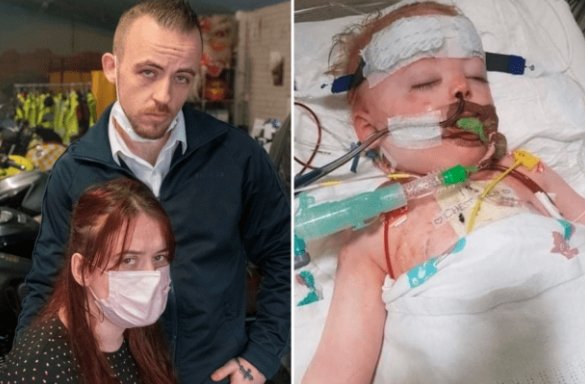A young boy from Scotland recently experienced a terrifying ordeal after accidentally swallowing a button battery. The incident, which could have had fatal consequences, highlights the dangers of small batteries and the importance of immediate medical intervention. Thanks to the swift actions of his parents and emergency responders, the boy is now recovering. This article delves into the details of the incident, the medical response, and the broader implications for child safety.
The Incident and Immediate Response
The incident occurred when the young boy, whose name has not been disclosed, was playing at home. He accidentally swallowed a button battery, a small, coin-shaped battery commonly found in household items like remote controls and toys. Recognizing the potential danger, his parents acted quickly, rushing him to the nearest hospital.
Upon arrival at the hospital, the medical team immediately assessed the situation. Button batteries can cause severe internal damage if not removed promptly, as they can generate an electric current that leads to chemical burns. The doctors performed an emergency endoscopy to locate and remove the battery from the boy’s esophagus. The procedure was successful, and the boy was kept under observation to ensure no further complications arose.

The quick response of the medical team was crucial in preventing serious injury. The boy’s parents expressed their immense gratitude to the doctors and nurses who treated their son. They also emphasized the importance of being aware of the dangers posed by small batteries and urged other parents to keep such items out of reach of young children.
The Dangers of Button Batteries
Button batteries, while small and seemingly harmless, pose a significant risk to young children. When swallowed, these batteries can become lodged in the esophagus or other parts of the digestive tract. The moisture in the body can trigger an electrical current, leading to the release of caustic soda, which can cause severe burns and tissue damage within hours.
Ingesting button batteries can lead to life-threatening injuries, including perforation of the esophagus, damage to internal organs, and even death. Symptoms of battery ingestion may include drooling, difficulty swallowing, chest pain, and vomiting. However, in some cases, there may be no immediate symptoms, making it crucial for parents to seek medical attention if they suspect their child has swallowed a battery.
Public awareness campaigns have been launched to educate parents and caregivers about the dangers of button batteries. These campaigns emphasize the importance of securing battery compartments on household items and keeping spare batteries out of children’s reach. Additionally, manufacturers are being urged to design products with child-resistant battery compartments to prevent such incidents.
Preventive Measures and Safety Tips
Preventing button battery ingestion requires vigilance and proactive measures. Parents and caregivers should regularly check household items for loose or accessible batteries. Items such as remote controls, hearing aids, toys, and key fobs should be inspected to ensure that battery compartments are secure and cannot be easily opened by children.
Educating children about the dangers of small batteries is also essential. Parents should explain that batteries are not toys and should never be put in the mouth. Supervising young children during playtime and keeping potentially hazardous items out of reach can significantly reduce the risk of accidental ingestion.
In the event of suspected battery ingestion, it is crucial to seek immediate medical attention. Do not induce vomiting or give the child anything to eat or drink, as this can worsen the situation. Prompt medical intervention is necessary to locate and remove the battery before it causes serious harm.
The recent incident involving the young Scots boy serves as a stark reminder of the dangers posed by button batteries. By taking preventive measures and raising awareness, parents and caregivers can help protect children from similar accidents and ensure their safety.


















